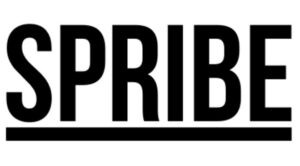Key Moments:
- The Joint Gambling Authority of Germany (GGL) leveraged new regulations from GlüStV to remove more than 200 unlicensed gambling sites from Google search results last year.
- German iGaming revenue experienced a drop from 3.5 billion Euros in Q1 2025 to 3.22 billion Euros in Q2, with online poker stakes also declining.
- Stringent advertising and sponsorship restrictions have been implemented to promote safety and responsible gambling within Germany’s regulated market.
Regulatory Overhaul Challenges and Defines the Market
Germany’s State Treaty on Gaming 2021 (GlüStV) has transformed the country’s online gambling sector, introducing strict policies and dividing opinion among stakeholders. While some view these provisions as overly restrictive and harmful to the market’s growth and influence, others herald the move as progressive, applauding the country’s commitment to safer gambling practices. The treaty’s main objective was to promote responsible gaming and enhance consumer protections, drawing the attention of industry participants across Europe.
Combating Unlicensed Operators
A significant motivation for the new regulatory regime was to address illegal gambling operators in Germany. Over the past several years, the GGL has targeted unlicensed platforms, hitting a notable milestone last year by clearing more than two hundred rogue gambling sites from Google’s search results. Despite this achievement, the authority’s CEO has acknowledged that considerable work remains in the fight against illegal operations.
By distinguishing clearly between properly licensed operators like Wildz Casino and unauthorized gambling platforms, the treaty has empowered regulators. According to last year’s activity report, over 800 unregulated sites persist in the German market. The GGL’s CEO continues to advocate for broader international cooperation, emphasizing that collaborative efforts are essential to eradicate illicit gambling platforms effectively. This stance has inspired action from regulatory bodies in other European countries, with Spain’s DGOJ recently blocking fourteen unauthorized operators and France’s ANJ establishing a new department dedicated to fighting illicit gambling.
Market Trends and Financial Performance
The GlüStV also aims to foster transparency in the gambling sector. The GGL has started publishing quarterly activity reports, marking a new era in regulatory openness. The first quarter of 2025 showed that German iGaming revenue reached 3.5 billion Euros. However, the second quarter witnessed a decline, with total stakes dropping to 3.22 billion Euros.
| Quarter | Total Stakes (Euros) | Online Poker Stakes (Euros) |
|---|---|---|
| Q1 2025 | 3.5 billion | 204 million |
| Q2 2025 | 3.22 billion | 184 million |
Online slots have been the only segment reporting marginal revenue growth. Many in Germany attribute these declines to the recent regulatory changes; however, some market analysts remain optimistic, anticipating a rebound as consumers adapt to the new environment, with projections expecting the market to surpass 19 billion Euros by year-end.
Enhanced Safety Measures and Advertising Controls
Central to the State Treaty is elevating safety and responsible gambling. Online platforms are required to provide dedicated pages on responsible gaming, offering clear guidance and promoting transparency. In addition, the GlüStV imposes strict advertising controls: online casinos are prohibited from marketing during hours likely to reach family audiences, aiming to protect minors from exposure to gambling promotions. Advertisements during live sports broadcasts face similar restrictions.
Sponsorship regulations are also stringent, barring sports figures and influencers from iGaming sponsorships. While some criticize these measures as excessive, they are comparatively less restrictive than recent rules enacted in the United Kingdom. As such, the German market may avoid the steep impacts experienced elsewhere in Europe.
Looking Forward
Germany’s iGaming industry is navigating a transformative phase marked by tighter regulation and a renewed emphasis on player protection. While revenue has recently declined, the increased transparency and stricter standards may foster long-term stability and investor confidence. Experts are monitoring the sector’s adjustment period, with many expecting the current setback to be temporary as the industry and its customers acclimate to the new framework.
- Author


